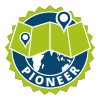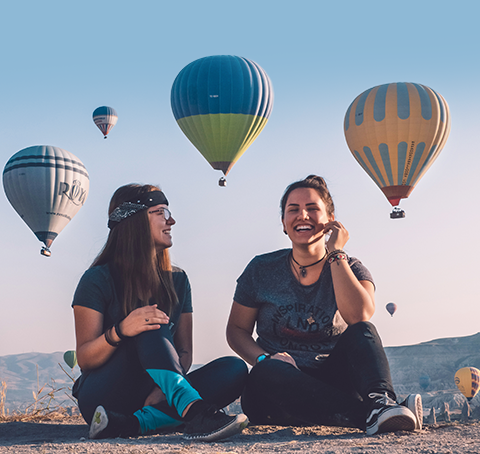Profile information

Host rating
100 %

Last replied
1 Apr 2025

Reply rate
100.0 %
Usually responds within 2 days

Feedback
5

Email verified
Badges (3)




Find your perfect host
Details

Description
My wife Claire and I aim to stimulate understanding about sustainability and to advance projects to help make it happen. Our Ecovillage project emerges from four decades of gathering and sharing information about long-term wellbeing.
We are located in Lanark County in Eastern Ontario, Canada. We have 140 acres of forest and wet-land with plenty of mature trees and about fifteen acres of cleared land. Two-fifths of the property is protected as Provincially Significant Wetland where we are welcome to explore but not to build. Our gardening and building plans are all on higher land within an area of less than 5 acres. The rest is open for wandering about and selective collecting and harvesting of firewood and saw logs to mill as needed for building projects.
We aim to demonstrate how domestic ecosystems can enrich and secure life.
In the Summer we work a 9000 sq. ft. organic garden where we practice full-cycle nutrient management. We have an orchard just starting to bear fruit. Some pruning is in order in the Spring, as is some grafting. Grafts from earlier seasons have been successful and we look forward to seeing what sorts of fruit they bear.
We have a solar food dryer, which is operable through the Summer. Frequently dried are spearmint, peppermint, nettle, lambs quarters, chard, kale and other greens, herbs and teas. We have also dried apples and tomatoes on occasion. When the days are short, we have indoor racks where this form of food preservation continues in the dryness of our wood-warmed accommodations. Because such drying requires no imported energy and preserves much nutritional content, we are interested in finding more foods that can be preserved this way for winter use.
The site is set and work begun on a root cellar where we will be able to store quantities of easily grown carrots, beets, potatoes and other vegetables as well as apples and pears. Once this food storage space is complete, work will start on a sauna beside the pond.
In addition to being a sizeable water reservoir, the pond can cool us off in the heat and provide a surface for skating in the winter. Perhaps one day we will build an ice house to move some of winter's cold into the summer where it would be much appreciated.
We have a fully-equipped woodworking shop, which has long been a source of income and now enables making many of the things needed for this eco-village project.
We also have a small flock of chickens.
Types of help and learning opportunities
Help with Eco Projects
Gardening
DIY and building projects
Animal Care
Creating/ Cooking family meals
General Maintenance

UN sustainability goals this host is trying to achieve

Cultural exchange and learning opportunities
Cultural evolution is the interest underlying everything we do here. How might the human family shift from its growth phase to a stable balance with the Earth?
For more than forty years I have studied, discussed, written about and toured with the message of sustainability.
From early on it has been obvious that the human family had grown to touch the limits of our planet. With that understanding, it is a big concern that practically all governments, world-wide, seek continuous growth. Growing is for children and for young species. Once the habitat is full, further growth leads to trouble. Many species starve, others are cut back by predators, large and tiny.
We like to think that humans are smart enough to recognize our maturity as a species and to set our collective sights on finding a balance within the carrying capacity of the places where we live and on the Earth as a whole.
We aim to further the understanding of how this shift from growth to sustainability might be accomplished.
The project aims to demonstrate what we can, and to serve as a meeting place for discussing further possibilities. We aim to stimulate imagination and sharing around further steps toward a sustainable future.
Topics for Discussion include: Biological life cycles, Systems of mutual provision (economics), The nature of money and alternatives, Cultural evolution (how change happens in society), Magic, Meditation and more
Any ideas from your own perspective on our changing world and from our forty year study of cultural evolution can be topics for discussion during and after work. There are a dozen key messages which, if volunteers want, are offered while they stay here.
Help
Much of what we have to do is seasonal and can be learned easily.
Gardening projects:
Getting the gardens started is top priority in the Spring
Building raised beds with temporary greenhouse potential.
Flats of seedlings are started the appropriate number of weeks before the danger of frost is ended. (End of frost in this area is traditionally thought to be May 24.)
Pruning fruit trees before the end of winter and grafting on apple and pear trees when the sap starts to flow.
Straightening garden fence posts and reactivating the electric fence strung on them. The many deer in the area love garden vegetables.
Preparing garden beds once the ground thaws.
Seeding frost hardy plants.
After the danger of frost is past, transplanting seedlings and other frost sensitive seeds is in order.
Cultivation and care of garden plants is a part time activity throughout Summer.
Some wild food gathering.
Harvesting, drying and otherwise preserving garden produce as it ripens and at the end of the season.
Maple Syrup
When the days are above freezing and the nights below, maple sap flows up and down the trees. By tapping that flow and boiling it down, a sweet syrup is produced.
Firewood
Collecting dead wood and wood from earlier clearing.
cutting it to stove lengths
piling it in two covered sheds.
For quality firewood, it is best for it all to be in the wood-sheds by the end of June so that it dries further through the hot summer months.
Other projects will, to some extent, depend on the interests of visitors.
Trails and open forest
There are numerous trails across the land that need to be kept open and many others that have yet to be identified and opened.
Also, in the forested areas in the active zone, clearing dead branches and thinking to encourage favoured tree renders the area park-like and easy to walk through.
Milling lumber and building
Activating our bandsaw mill.
Milling logs from pond clearing
Selectively harvesting enough other trees to make the balance of the lumber needed to frame one or another of these small scale structures.
Bath house and solar shower.
Green house building
Sauna
Root Cellar
Pouring a concrete footing and laying cement block walls. Then pouring a vaulted ceiling to support a layer of ground for insulation. A small wooden structure will be built above for dry storage and additional visitor accommodation.
Solar Water Pump
Connecting solar panels to a water pump for campers, additional gardens, the bath house and topping up the pond in hot weather.
Chickens
Feeding, egg collection and coup clean-out
Expanding chicken run
Languages spoken
English: Fluent

Accommodation
We have several sorts of accommodation. All have access to showers, a washing machine, indoor and out door kitchens
Camping: there is abundant land where tents can be set up.
A small trailer with a wood heater
A 20 ft diameter yurt with a wood heater. The yurt is sometimes rented out as a B&B.
Bedrooms in the house.
Managing food in the Summer Kitchen will be a collective effort, to be worked out with the people who come.
What else ...
More fun, less stuff has been a goal throughout my life. We should get so much satisfaction from living that we don’t have time to consume and pollute on a dangerous level.
This property is a large expanse of mixed forest, rock outcroppings and a few open fields. It is surrounded by more of the same on all sides. We back on the Mississippi River and are close to the Clyde River. There are numerous lakes in the area.
We are always keen to welcome visitors and to share our stories of a sustainable future. Help with building up this project to provide a glimpse into the possibilities is always welcome. While we have only a start of what is possible, the vision is well developed. My mother told me “Keep your eyes on the stars and do what's possible.”
By making friends while working on the vision, we can extend what is possible, here and wherever our guests return to after their visits. We like to stay in touch, where interest continues, to keep ideas flowing and for whatever advantage coordinated actions might serve.
A little more information

Internet access

Limited internet access

We have pets

We are smokers

Can host families

Can host digital nomads
Our Internet is DSL and works well most of the time.

How many Workawayers can stay?
Two
Feedback (4)
First, I want to highlight the professionalism, smooth communication, and flexibility of both Mike and Clair. Their approach was amazing and… read more
They were amazing, very kind and consider us like family.
Concerning the work to do, it’s very flexible, Mike and Claire will always make sure that you enjoy what you do. There is the construction of the sauna ongoing, and many things to do in the garden : harvest,… read more
I needed some time off the city to ponder important decisions, and this place provided me with exactly what I needed - a quiet environment surrounded by forest, where I could work with the plants in the garden, run after the chickens (always fun!), learn some cool tips on sustainable living,… read more
Feedback
These are extra optional ratings when members leave feedback. The average rating left for each option is displayed.
Accuracy of profile:
(5.0)
Cultural exchange:
(5.0)
Communication:
(5.0)
First, I want to highlight the professionalism, smooth communication, and flexibility of both Mike and Clair. Their approach was amazing and… read more
They were amazing, very kind and consider us like family.
Concerning the work to do, it’s very flexible, Mike and Claire will always make sure that you enjoy what you do. There is the construction of the sauna ongoing, and many things to do in the garden : harvest,… read more
I needed some time off the city to ponder important decisions, and this place provided me with exactly what I needed - a quiet environment surrounded by forest, where I could work with the plants in the garden, run after the chickens (always fun!), learn some cool tips on sustainable living,… read more
Jakob is a steady, careful worker, content to work with you or on his own. He is energetic, understands new activities quickly and can innovate when required.
Organized and tidy, Jakob's enthusiasm and good nature make him a pleasure to live and work with.
An inspired cook and… read more

































